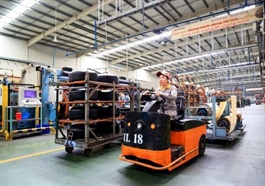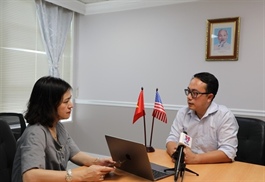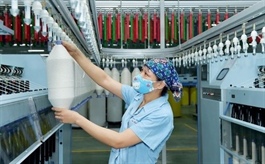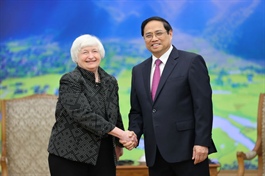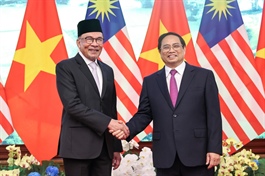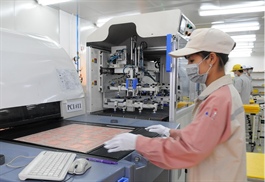Vietnam's rising role drives surge in US investment
Vietnam's rising role drives surge in US investment
The growing importance of Vietnam in global supply chains, particularly in the semiconductor industry, is attracting significant investment from major US companies.
Vietnam has become a key player on the global economic stage, playing a vital role in numerous global supply chains, particularly in the semiconductor industry. Major US companies are increasingly drawn to Vietnam, considering it a pivotal point in the global semiconductor supply chain.
The assessment came from US Treasury Secretary Janet Yellen during a meeting with businesses and the press organised by the US-ASEAN Business Council in Hanoi on July 21.
Yellen lauded Vietnam's dynamic and determined efforts that have propelled its economic development, stating that this undeniable strength would help the country achieve its goal of becoming a high-income nation by 2045.
She also noted that top US companies, such as Apple and Google, have a significant and growing presence in Vietnam. Over the past two decades, trade between the two nations has grown by nearly 25 per cent annually. The impressive figure not only reflects the surging import of Vietnamese goods to the United States, but also the fact that US exports to Vietnam have increased nearly twentyfold since 2002, showing no signs of slowing down.
"Our trade in goods reached a record high last year. I believe that this robust economic relationship can be achieved because it is based on mutual trust, born from our work in addressing the legacies of war and strengthened by our close and growing ties," said Yellen.
Restructuring supply chains and reviving trade
Regarding trade, the US is pursuing a strategy known as "friendshoring" to build secure and reliable supply chains. The goal is to reduce the economic vulnerability to supply shocks during the production of critical goods, especially due to over-concentration and geopolitical risks.
To achieve this, the US is investing domestically to tackle redundancy in its supply chain.
An analysis by the US Treasury Department showed that real manufacturing activity within the US doubled by the end of 2021. However, this doesn't mean everything is being built solely in the US.
"We believe that long-term economic resilience requires diversified global supply chains. This means deepening our economic integration with trustworthy countries, including Vietnam," the US Treasury Secretary said.
The head of the US Treasury emphasised the top priority of building resilience in the US semiconductor supply chain. A study estimated that the global chip shortage during the pandemic contributed to over $500 billion in lost revenues from 2020 to 2022.
The US is adopting a comprehensive approach to diversify and strengthen the semiconductor ecosystem. By moving operations away from overly centralised or risky points in the global supply chain, the US aims to create a safer economic position for itself and the world. In the past decade, Vietnam has emerged as a crucial node in the global semiconductor supply chain.
"Investment here is increasing, for example, Arizona-based company Amkor will soon open a modern, large factory in Bac Ninh, just an hour's drive from Hanoi, for assembling and testing semiconductors. Meanwhile, in Dong Nai province in the south, another US company, Onsemi, is producing chips used in automobiles that travel half the globe. In Ho Chi Minh City's High-Tech Park, the world's largest assembly and testing site of Intel is located. Many companies investing in Vietnam are also building their capacity and jobs in the US," Yellen said.
Looking beyond, Vietnam and the US have actively collaborated to strengthen sustainable supply chains with other nations. The US is intensifying cooperation with emerging and developing economies, exemplified by its partnership with Vietnam.
"This is why we have launched new initiatives to invest in partner countries' development, including engaging in the G7 commitment to mobilise $600 billion of infrastructure investment over the next several years through the Infrastructure Partnership and Global Investment," said Yellen.
Addressing coping capabilities and climate change, Yellen asserted that the US was committed to helping other countries build resilience. The US takes pride in supporting Vietnam's transition to a zero-net-emission economy by 2050.
"The US is proud to continue supporting and cooperating to build mutually beneficial economic prosperity. Economic resilience must be a significant part of our economic strategy, and I look forward to working with all of you to enhance our economic partnership," she added.







